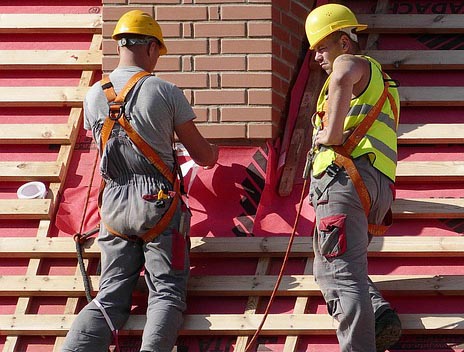As orange and red weather warnings hit the island with wearingly predictable frequency, most workers are grateful to be sheltered in air-conditioned offices and shops. Yet, while they enjoy this comfort, countless others continue to work outdoors under sweltering temperatures reaching up to 45 degrees Celsius.
The Labour Inspection Office plays a crucial role during these times, conducting surprise visits to ensure that workers’ conditions remain safe, healthy and legal.
According to Aristodimos Economides, director of the department, this summer’s orange and red warnings issued by the Meteorological Service led to 310 inspections being carried out.
“This led to 58 out-of-court fines and 36 prohibition notices being issued,” he told the Cyprus Mail.
However, questions remain about how frequent and effective these inspections truly are.
Violations remain common in all kinds of labour sectors, such as construction, agriculture and restaurant kitchens to name just a few.
The moment orange and red weather warnings are issued, inspection officers check to ensure that the appropriate measures are taken by the employers to manage the thermal load.
Especially when the government announces the warnings to suspend outdoor work between 11 and 5pm, officers are sent out to check whether outdoor manual labour has stopped.
“When there is an orange warning, from 12pm to 4pm, work must be interrupted for outdoor spaces and manual labour, while during a red alert calls for work suspensions between 11am to 5pm,” said a labour inspection officer who did not wish to be named.
The inspections take place daily with parties of two to three officers visiting work sites to ensure that no work is underway at times of extreme heat.
“If workers continue to work under the 45-degree sun, heavy penalties are placed on the management.”
The fine for continuation of work during extreme heat alerts can reach anywhere from €500 to €1000, with possible fine increases if other violations also take place at the site.
During active weather warnings, when asked if the workers get paid for the hours their work was interrupted, the officer said, “More often than not the [missing] work hours are distributed over their following shifts, otherwise, they simply get paid.”
The reality remains, however, that in most cases, the criteria to ensure safe working conditions in Cyprus’ usual searing summer temperatures are rarely met. In many restaurant kitchens, for example, conditions can become particularly severe, as staff battle the hot temperatures outside which exacerbate the indoor heat from cooking hobs and stoves. Yet they continue to operate without fans or a/c, correct ventilation or a sufficient break time for workers.
It is becoming increasingly common for workers to call the inspectors themselves when inspections do not occur in an attempt to ensure that their working conditions are adequate.
What was also increasingly evident was the number of construction workers complaining over the lack of inspections. While the labour ministry itself claims to consistently undertake checks, the workers complain of negligence.
“Oftentimes, contractors take over projects they cannot complete on time, and we as the workers are forced to work long hours in the scorching sun, even during heat alerts,” complained one construction worker.
Inspectors visit larger sites, from big reputable contractors who typically obey the work ban, but when it comes to smaller projects such as houses or apartment blocks, no labour inspector is in sight.
“I was not even aware that a labour inspection office existed, that’s how rarely we see them!” said a construction worker laughing.
Whether through the contractors’ greed or the lack of inspections from the ministry, many construction sites continue operating even when temperatures reach 45C, while the contractors take advantage of the workers’ need to work for survival.
When asked whether they interrupt the work during weather alerts, one contractor was surprised, “of course we carry on working! Otherwise, when would the project finish?”
To battle the heat through a full workday, contractors resort to other options to avoid the work ban. “Sometimes contractors just bring us Coke Zeros and bottles of water but that’s about it,” said one worker.
Another said that instead of leaving the site and not receiving a salary, they prefer to stick to the shade when possible.
Most outdoor workers are not provided with appropriate breathable attire to protect themselves. A self-employed painter said, “I just wear my every-day clothes and when it gets unbearable, I just go home.”
Unfortunately, not all outdoor workers are so lucky.
Other heat-smart contractors take protection from the temperatures seriously, by wearing lighter-coloured clothing, thinner materials and caps. “I try to take my breaks in shaded areas and stay well-hydrated, same as the rest of the team.” This specific contractor was the only one asked who said the inspection officers had paid a visit.
During times of environmental burden and the average temperature increase, regulating the working conditions of manual labourers remains inconsistent.
Ensuring that the labour taking place outdoors – and in many cases indoors as well – is safe and legal is now more essential than ever.






Click here to change your cookie preferences